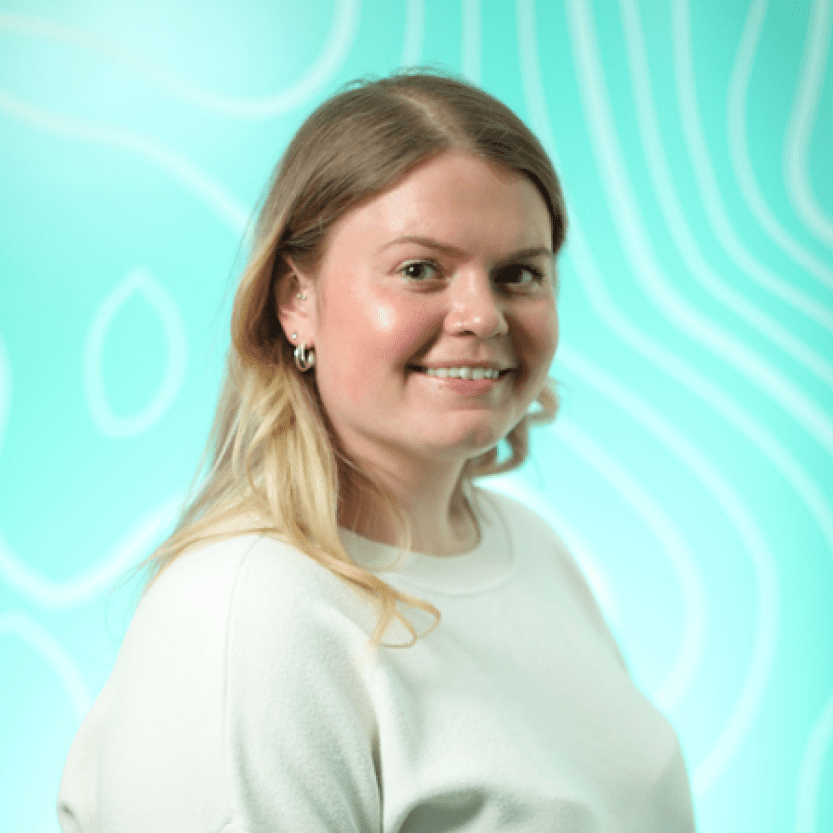
Katie discusses life as a Graduate Planner at MKO. Katie studied Bachelor of Arts in Geography and German at Mary Immaculate College and a Masters in Planning and Development at the University of Galway. Katie joined MKO in 2024 as a Planning Intern.
What inspired you to pursue a career in planning?
My passion for geography has been with me since school, and as I continued my studies in college, I had the opportunity to explore placemaking and the concept of balanced versus imbalanced growth. This experience sparked my interest and made me realise that planning is a field where I can combine my love for geography with meaningful work. It was then that I recognised the potential for a fulfilling career in a subject I genuinely enjoy. During my master’s programme, I had the opportunity to complete a student placement in MKO, which gave me a deeper understanding of the planner’s role. It was there that I discovered my passion for the profession. As a result of this experience, I was offered a graduate planner position with MKO, and I haven’t looked back since.
Can you describe your typical day?
As a graduate planner, my daily routine is dynamic and always changing, which is one of the aspects I enjoy most about the role. No two days are the same, offering a great deal of variety. My tasks range from writing reports and conducting site visits to posting site notices. I also attend meetings with clients and colleagues and spend time researching projects or staying informed about the latest developments and trends. Each day brings something new and keeps me engaged with different aspects of the planning process.
What types of projects are you currently working on?
As a member of the commercial planning team, I’m involved in a wide range of projects. These typically include developments such as hotels, retail spaces, factories, healthcare facilities, office buildings, and large-scale residential projects. Recently, I’ve also begun working on some exciting solar energy projects, adding an innovative and sustainable element to my portfolio. Each project presents its unique challenges, making my work both diverse and engaging.
How would you describe the culture at MKO?
The culture at MKO is incredibly welcoming and relaxed, which makes it easy for new team members to settle in and feel at ease. What stands out, however, is the strong sense of support and collaboration. The willingness of colleagues to offer guidance and assistance is unmatched, ensuring that you always feel supported in your role. This creates a comforting and positive atmosphere where everyone can thrive.
What do you enjoy most about your role at MKO?
What I enjoy most about my role at MKO is the opportunity to work alongside such knowledgeable and supportive colleagues. Every day feels like a learning experience, as I constantly pick up new insights and skills from my peers. The team is incredibly helpful, and their willingness to share their expertise makes it easy to grow and develop within my career. The collaborative environment fosters both personal and professional growth, which is something I truly value.
What advice do you have for someone aspiring to pursue a career in planning with MKO?
My advice for anyone aspiring to pursue a career in planning with MKO would be to always ask questions – if you’re ever unsure about something, it’s better to seek clarity than to make assumptions. Additionally, be proactive in offering help to colleagues when needed. This not only fosters a collaborative environment but also provides valuable opportunities to learn about different aspects of the planning process that you may not have encountered yet. Embrace every chance to broaden your knowledge and contribute to the team.
What are the most important skills required for your role?
The most important skills for my role as a planner include strong report writing abilities, as much of the work revolves around preparing clear, well-structured reports. Effective communication skills are also crucial, as you’ll need to engage with clients, local authorities, An Bord Pleanála, and colleagues regularly. Additionally, a basic understanding of GIS is beneficial for conducting research and mapping land parcels, as it enhances your ability to analyse spatial data and make informed decisions. These skills together help ensure that projects are completed efficiently and accurately.
What is the most exciting thing about the future of planning?
The most exciting aspect of the future of planning in my opinion is the scale of the projects that lie ahead, particularly those aimed at meeting housing targets, climate goals, and addressing the needs of a growing population. These large-scale developments present incredible learning opportunities for planners, offering the chance to work on impactful and transformative projects. The challenge of balancing sustainability, growth, and community needs makes it an exciting time to be involved in the field.


